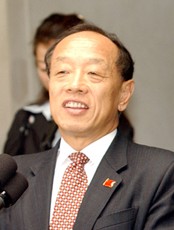A Quote by Arancha Gonzalez
It makes perfect economic sense to integrate women in the economy in the developing world in order to catch up with advanced countries, thereby minimising socioeconomic costs as well.
Related Quotes
When you really look back and take the wider perspective, it makes total sense that if the status quo is to remain the way it is, women will not be lauded and applauded for bonding with and helping each other, because it would destroy the world order if women organized; it would topple the whole thing. And so, it makes perfect sense to me that the current order of things would encourage the cat fights and encourage the comparisons and encourage the girl-on-girl hate that you see just being promoted everywhere.
I know this is economic jargon, but essentially, if you bring more women to the job market, you create value, it makes economic sense, and growth is improved. There are countries where it's almost a no-brainer: Korea, Japan, soon to be China, certainly Germany, Italy. Why? Because they have an aging population.
Exporters monitor economic and political policies to the developing world, but the consequences of that have been to make developing countries far more sensitive to the constant fluctuations. Developing countries are not always allowed to support their farmers in the same way as the U.S. or Europe is. They're not allowed to have tariff barriers. They're forced, more or less, to shrink their social programs. The very poorest people have fewer and fewer entitlements. The consequence of this has been that there's been a chronic increase in the vulnerability of those economies to price shocks.




































